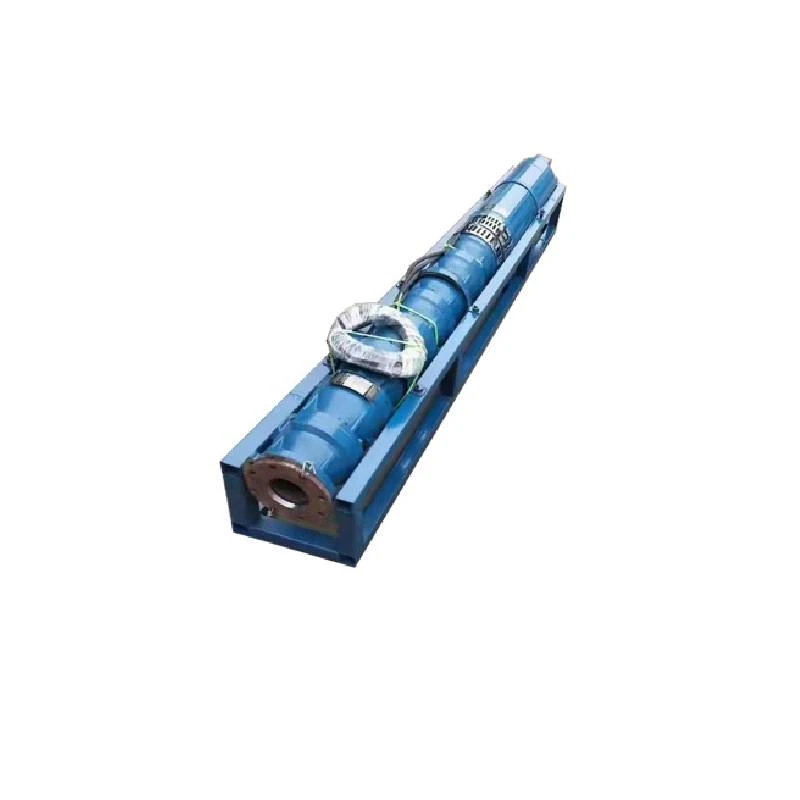Dec . 13, 2024 13:43 Back to list
submersible well water pump
Submersible Well Water Pumps A Comprehensive Overview
Submersible well water pumps are essential devices widely used for extracting water from deep underground sources. These pumps are submerged within the water they are designed to pump, making them highly efficient and effective for a variety of applications, including agricultural irrigation, residential water supply, and municipal water systems. This article explores the components, operation, benefits, and considerations associated with submersible well water pumps.
Components and Operation
A submersible well water pump consists of two main components the motor and the pump itself. The motor is typically hermetically sealed to prevent any water ingress, ensuring that the unit operates in the harsh environment of submerged conditions. This design allows the pump to push water to the surface rather than relying on suction, which can be less effective, especially at greater depths.
When in operation, the motor drives an impeller, which rotates rapidly and creates a pressure differential. This action forces water up through a series of stages within the pump. The water is then discharged through a pipe that leads to the surface, providing a reliable and steady flow of water for its intended use.
Advantages of Submersible Well Water Pumps
1. Efficiency One of the primary advantages of submersible pumps is their efficiency. By pushing water rather than pulling it, these pumps can handle significant depths without losing performance. This makes them an ideal choice for deep wells that require high water extraction rates.
2. Durability Submersible pumps are designed to withstand harsh conditions, including the corrosive nature of groundwater and the pressure of being submerged. Many are constructed from high-quality materials like stainless steel and thermoplastic, which ensures longevity and reduced maintenance requirements.
3. Compact Design The design of submersible pumps allows them to be installed vertically within the well, saving space above ground. This compact nature also means less equipment is required at the surface, resulting in a less cluttered installation.
4. Quiet Operation Unlike surface pumps that can be noisy during operation, submersible pumps operate quietly, as they are situated beneath the water’s surface, causing less disturbance to both humans and wildlife.
submersible well water pump

5. Versatility These pumps are suitable for various applications, from agricultural irrigation to providing water for homes and industries. They can handle different water qualities, including clean and slightly contaminated water.
Considerations Before Installation
When considering the installation of a submersible well water pump, several factors should be taken into account
1. Well Depth The depth of the well is a critical factor in selecting the right pump. It is essential to choose a pump that can operate efficiently at the specific depth of your well, ensuring optimal water flow and pressure.
2. Water Quality Understanding the quality of the water being pumped is crucial. If the water contains high levels of sand or minerals, selecting a pump designed to handle such conditions will be necessary to avoid damaging the pump over time.
3. Power Supply Submersible pumps require a reliable power source for operation. It is essential to ensure that the electrical supply is adequate and up to code to prevent any safety hazards.
4. Cost While submersible well water pumps can be more expensive initially compared to other types of pumps, their efficiency, durability, and maintenance savings often provide a better return on investment over time.
5. Professional Installation Due to the complexities involved in the installation process, including electrical connections and proper sealing, it is advisable to enlist the help of a professional. This ensures that the pump is installed correctly and operates efficiently.
Conclusion
Submersible well water pumps are a vital solution for accessing groundwater, offering a range of advantages from efficiency and durability to quiet operation. By considering the factors involved in their installation and operation, individuals and businesses can effectively harness this technology to meet their water supply needs. Whether for irrigation, household use, or industrial applications, submersible pumps provide an effective and reliable means of accessing vital water resources from deep underground.
-
Submersible Water Pump: The Efficient 'Power Pioneer' of the Underwater World
NewsJul.01,2025
-
Submersible Pond Pump: The Hidden Guardian of Water Landscape Ecology
NewsJul.01,2025
-
Stainless Well Pump: A Reliable and Durable Pumping Main Force
NewsJul.01,2025
-
Stainless Steel Submersible Pump: An Efficient and Versatile Tool for Underwater Operations
NewsJul.01,2025
-
Deep Well Submersible Pump: An Efficient 'Sucker' of Groundwater Sources
NewsJul.01,2025
-
Deep Water Well Pump: An Efficient 'Sucker' of Groundwater Sources
NewsJul.01,2025
-
 Submersible Water Pump: The Efficient 'Power Pioneer' of the Underwater WorldIn the field of hydraulic equipment, the Submersible Water Pump has become the core equipment for underwater operations and water resource transportation due to its unique design and excellent performance.Detail
Submersible Water Pump: The Efficient 'Power Pioneer' of the Underwater WorldIn the field of hydraulic equipment, the Submersible Water Pump has become the core equipment for underwater operations and water resource transportation due to its unique design and excellent performance.Detail -
 Submersible Pond Pump: The Hidden Guardian of Water Landscape EcologyIn courtyard landscapes, ecological ponds, and even small-scale water conservancy projects, there is a silent yet indispensable equipment - the Submersible Pond Pump.Detail
Submersible Pond Pump: The Hidden Guardian of Water Landscape EcologyIn courtyard landscapes, ecological ponds, and even small-scale water conservancy projects, there is a silent yet indispensable equipment - the Submersible Pond Pump.Detail -
 Stainless Well Pump: A Reliable and Durable Pumping Main ForceIn the field of water resource transportation, Stainless Well Pump has become the core equipment for various pumping scenarios with its excellent performance and reliable quality.Detail
Stainless Well Pump: A Reliable and Durable Pumping Main ForceIn the field of water resource transportation, Stainless Well Pump has become the core equipment for various pumping scenarios with its excellent performance and reliable quality.Detail
